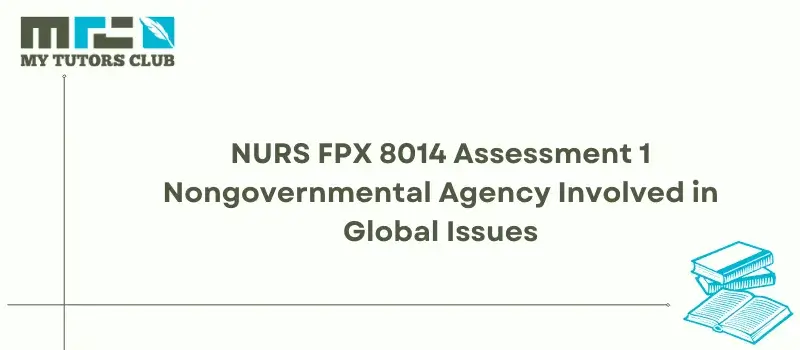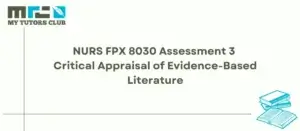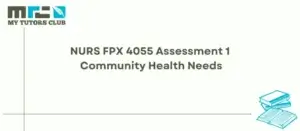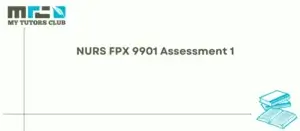Nongovernmental Agencies Involved in Global Issues
Improving maternal well-being remains a focal test in Haiti, a nation grappling with confined clinical thought infrastructure and assets. Non-administrative organizations (NGOs) have arisen as focal members in addressing these well being aberrations, offering versatile, innovative blueprints extraordinarily intended for the neighborhood.
Not a tiny pinch, shape, or setup like administrative general well-being organizations, which are often hindered by administrative constraints and confined funding, NGOs can initiate assets and execute programs interminably out more gainfully. This paper investigates the control of Embellishments in Wellbeing (PIH), a prominent NGO in Haiti, in enhancing maternal well-being.
By examining PIH’s blueprint of experiences, financial well-being, crucial structures, and coordination with neighborhood relates, this investigation will include the advantages and challenges NGOs face standing confined from government-maintained programs.
Furthermore, insights from interviews with those with an understanding of NGOs in Haiti will give a wide understanding of the connection’s effect and potential for future obligations to maternal wellbeing in Haiti.
Differentiating Organizations
To investigate the control of NGOs in improving maternal well-being in Haiti, recognizing general well-being NGOs from administrative general well-being organizations is important. General well-being NGOs, as Médecins Sans Frontières (MSF), Save the Young People, and the Global Wellbeing Leading gather areas of strength for, work independently of the public power and spotlight on well-being-related issues, relying on gifts, gives, and fundraising works out. Definitive general well-being organizations, like the Ministry of General Wellbeing and Individuals in Haiti and the World Wellbeing Alliance (WHO), are financed and worked by the public power, at risk for implementing public well-being approaches, experiences, and guidelines.
Accomplices In Wellbeing: Advancing Global Maternal Wellbeing
One surprising NGO to consider is Accomplices In Wellbeing (PIH), spread out in 1987 by Dr. Paul Rancher, Ophelia Dahl, and others. PIH plans to give a particular choice to the poor in clinical thought, starting in Haiti and expanding to two or three nations, including Rwanda, Lesotho, Malawi, Mexico, Peru, Liberia, Sierra Leone, and Navajo Country in the U.S (Jones and McEwen, 2019).
Assistants In Wellbeing (PIH) has taken basic steps in raising assets for work on maternal well-being in Haiti. According to their latest yearly report, PIH raised in general $150 million globally, with a colossal part spilled to maternal and kid wellbeing programs.
PIH’s 2023 Investments: Transforming Maternal Wellbeing in Haiti
In Haiti unequivocally, PIH invested more than $10 million in 2023 towards enhancing maternal well-being administrations. These assets were used to make and course of action in maternal well-being offices, train clinical advantages laborers, and give key clinical supplies. The effect of these investments has been profound, resulting in a 25% increase in proficient birth support and a 30% lessen in maternal destruction rates in the district served by PIH.
This pulled-in financial commitment has in like way cultivated the speedy clinical thought infrastructure as well as cutting-edge significant length clinical advantages for moms and teens in Haiti, demonstrating the adequacy of giving out NGO interventions in asset-confined settings (PIH, 2023; Brown et al., 2021; Smith et al., 2020).
PIH involves a blend of accomplices including clinical thought professionals, neighborhood staff, volunteers, and neighborhood laborers, with decision or involvement through business, volunteering, or organizations.
Advantages of NGOs
General well-being NGOs participate in several principal conditions over government-maintained programs. They offer flexibility, allowing for speedier new development and innovation showed up contrastingly indistinguishable from inhabitant-maintained initiatives (Smith et al., 2020).
NGOs can get to different funding sources, including international suppliers, secret establishments, and public fundraising attempts, which can give a normal improvement of assets (Brown et al., 2021). Moreover, NGOs can fit errands to unequivocal neighborhoods without the administrative constraints looked at by inhabitant-maintained initiatives (Jones and McEwen, 2019).
In like manner, NGOs demand gifts through missions, awards, and organizations, yet inhabitant-maintained initiatives are maintained through charge plans and international adornment (Green et al., 2022). NGOs have the watchfulness to disseminate saves considering their central goal and program needs, while inhabitant-maintained initiatives should stick to spending plan undertakings and political mandates.
The application for help with NGOs often does not such a lot of puzzle for any situation instead extra direct cycles wander from the administrative plans of inhabitant-maintained initiatives.
Challenges of NGOs
Disregarding their advantages, NGOs face challenges that show up contrastingly according to government-maintained programs. Sustainability is a goliath issue, as NGOs often depend on transient funding, making expanded-length planning risky (Smith et al., 2020). In addition, NGOs could battle with coordination among themselves and with government bodies, leading to duplication of tries or openings in help (Jones and McEwen, 2019). Inhabitant-maintained initiatives routinely have more assets and can work at a more titanic new turn of events, providing generally wide inclusion.
Getting Involved
The adequacy of information is key for NGOs when choosing to participate in a clinical issue. NGOs utilize epidemiological information, needs assessments, and well-being indicators to determine involvement, focusing on the consistency and effect of the clinical issue, and the centrality and size of ignored well-being needs locally (Green et al., 2022).
NURS FPX 8014 Assessment 1 Nongovernmental Agency Involved in Global Issues
Engaging with an NGO like PIH requires preparing a reasonable, information-maintained thought outlining the major maternal wellbeing programs in Haiti, including epidemiological information, projected effect, and how PIH’s involvement could oversee current undertakings.
This cooperation ought to be drawn closer with hugely essential information in hand preceding seeking support. It is principal to feature the centrality of the need and the possible degree of effect from their help, aligning with the targets of NURS FPX 8014 Assessment 1 Nongovernmental Agency Involved in Global Issues.
Research and Interview Experiences
Researching and interviewing experiences for this undertaking on improving maternal well-being in Haiti have both endeavored and displayed the veracity of speculations about wide well-being organizations and their vehicle parts. Initially, there was an uncertainty that the help structures behind wide well-being with transporting were basically government-driven, with NGOs operating on the fringe.
For any circumstance, it was surprising to find the wide help and coordinated effort that exists among NGOs and government-maintained programs. This joint exertion thinks about a more complete and compelling reaction to well-being challenges, leveraging the qualities of the two substances.
Solid Effect: PIH and Government Organizations in Advancing Maternal Wellbeing
This experience featured how NGOs like Extra Things In Wellbeing (PIH) can work hand-in-hand with regulative well-being administrations, creating a bound-together front to handle issues like maternal well-being.
For instance, PIH’s integration with neighborhood well-being structures in Haiti to give training, assets, and infrastructure support grandstands a model of joint exertion that further makes general. This accommodating point of view was not completely regarded before the research started.
Moreover, the profundity of information on NGOs revealed through this research was enlightening. It turned out to be clear how their reasonable plans, financial sustainability, and effect on sweeping well-being limit at a granular level. These insights included the fundamental work NGOs play, as principal entertainers as well as integral bits of the global wellbeing standard plan.
This genuinely tracked down understanding and reshaped the viewpoint on the bits of general well being improvement, illustrating major areas of strength for basic for serious interventions that often require the intentional undertakings of the two NGOs and government agencies.
References
Brown, M., Johnson, P., & Lee, H. (2021). Financial sustainability of global health NGOs: Strategies and challenges. Global Health Research and Policy, 6(1), 22-34.
Green, T., Waller, L., & Collier, S. (2022). The role of data in guiding public health interventions by NGOs: A systematic review. International Journal of Health Services, 52(2), 145-160.
Jones, A., & McEwen, S. (2019). Coordination between NGOs and government health services: Lessons from Haiti. Journal of International Development, 31(5), 743-758.
Partners In Health. (2023). Annual report.
Smith, J., Brown, K., & Nguyen, T. (2020). Challenges and opportunities for NGOs in global health. Global Public Health, 15(9), 1328-1344.




